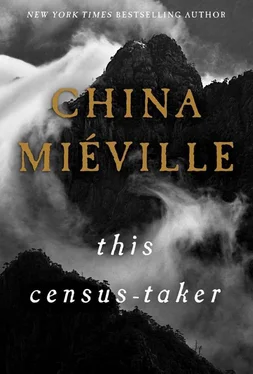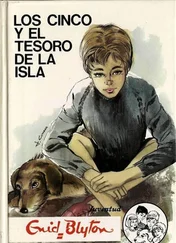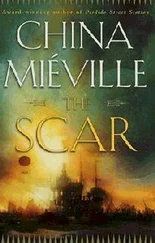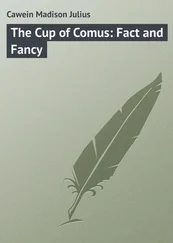—
When he understood that they wouldn’t take my father to jail and they wouldn’t take me from him, Drobe screamed at the officers. Samma would probably just have got hold of me and walked away in any direction until they’d reached her, maybe hit her and taken me back. Drobe did shout at them that they were wrong, bastards, and so on.
I ran outside. The window-cleaner caught me easily. The hunter and the teacher with the law books huddled with my father in the tunnel and spoke to him too low for me to hear.
“We can’t just take you,” the hunter came and said to me eventually. “He didn’t do what you said.” He said that quickly.
“Lock him up,” Drobe said. “When the police next come they can go down there and look.”
“No one can go down there,” the teacher said.
“There’s no one there,” my father said. He sounded almost too exhausted to speak.
I said something about the customer who’d come and argued.
“Smail?” my father said. “Is that who you mean? Oh, son.
“I don’t know his second name,” he said to the others. “Smail. He came for keys. He was already on his way. He’d left, and he made sure he’d pass my house. He wanted one key to get money, one so he could travel quickly, and one for a disgusting thing, so I wouldn’t make it for him and he shouted. But I did make him the travel key. Only that one. And he went on. Ask anyone. Ask his friends. They’ll tell you he always wanted to get away, and he did. There’s no one in the mountain.”
“You,” the hunter said slowly to him. He looked at me and said it loud, as I listened. “We’ll come back.”
“You should come back,” my father said.
“I fucking mean it. We’ll send someone up and you’ll show us the boy so we know you’re treating him right.”
“Yes.” My father nodded with abrupt rage. “You should . Look at me. You should come back.”
The window-cleaner was looking into the sky, at the waning light. Drobe ran to me.
“I’ll come and get you,” he whispered. But the teacher was calling him and he had to turn.
The window-cleaner descended with the woman beside him. They still kept glancing up at the sun. Behind them went Drobe, watched by the hunter.
It was he, the last man, who looked back at me most, more often even than the boy.
There is a kind of thorned bush that thrives on the hill where I was born. I’ve never seen it anywhere else. It stands about a meter tall, with compact snarled branches that grow in dense near-cylinders so its copses are like low, snagging pillars. Its all-year berries are blue-gray but in the red light of sunset their luster makes them shine like black pupils.
I stood among the columnar bushes watched by their nasty vegetable eyes.
My father didn’t look at me. He dropped more stones upon a random-looking cairn. The townspeople were slow to get out of our sight. He waited and watched them and didn’t look at me and kept adding to the substance of the hill with the substance of the hill.
When Drobe looked back a last time his eyes and mouth widened in horror at my expression. He would have taken a step back toward me but the hunter put his hand on him, not cruelly but removing hope of escape. The man whispered to Drobe and Drobe made some sign for me with his hands but I didn’t know what he was saying.
When they were gone I stayed behind my perimeter of sentry bushes in the failing light.
“I’m not angry,” my father said.
I was full of the injustice of it; that that was how he tried to reassure me.
“It’ll be all right,” he said gently. He stepped closer. “I’m sorry about it all.”
I didn’t move: I had no moving left in me. My father stood with only one line of thorns between him and me. He held out a hand.
And I was alone with him on the cold hill and I could do nothing. I stayed still as long as I could as if something might happen but it didn’t, and when it didn’t I shuffled as slowly as I could out from the vegetation, I dragged my toes against the ground but it was as if there was nowhere to go but to him.
He smiled as I came. He looked as if he might cry.
“Hello again,” my father whispered.
He kept his hand out until I took it.
His skin was tough and warm. I felt sick to touch it.
“Come on,” he said. “I’ll feed you. Come home.”
That first night alone with my father I sat in the kitchen without hope.
He cooked, glancing at me as I waited speechless and deflated like an empty bag. I almost felt too empty to be afraid until the night came all the way on and I lay in my cubby room listening for the sound of my father coming up the stairs, imagining him at my door, between his and my mother’s empty room, looking at me as if I was something curious, looking at me and not at me at the same time. I stared at the ceiling that was the attic floor, growing dizzy. I imagined my father watching me as if I was something that he should make stop moving.
I don’t remember sleeping. The next day I was slow and twitchy. I didn’t know what to do or what was to happen.
My father would make keys. I?
“Are you going to play?” he said.
He fed me again. Put food in front of me as the gray light came up, that is, though I couldn’t eat it. “I’m working all day,” he said. “This is for you for later. Don’t go too far.”
While he cut metal I opened the door to my mother’s room.
There were no covers on the bed frame, no books on the shelves or surfaces, which had been swept, so there were no dust marks where any books had been.
I walked our home’s perimeter of earth. What do you do on a day like that?
I wanted to see the letter again, as if staring at it might help me, but I didn’t know where it was.
Several times that day my father shouted for me from the house’s front step. He didn’t do so angrily: just checking, making sure I was close. He would make me answer.
I drew marks on a rock with the end of a stick I burned for that purpose. At a certain point they became letters and then words. I can’t remember what I wrote, which seems strange to me now. I wrote whatever I wrote, and stood back and threw pebbles at the words, looking for a particular parabola, an exact curve.
If they hit them, I thought, it means I can go.
The first throws went wide. I kept trying. When one of my stones arced up to land right exactly on what I’d written I felt squeezed inside, as if it were the writing that pulled the stones in.
He called me when the sun went down. One day had passed. I watched as the dark spread and I listened to him and I felt cold all over again. I smeared away everything I’d put down on the rock before I obeyed him. I left my slate, the stone page the hill put out for me, unreadable.
He brought me a drink of sweet herby milk while I lay in bed and he stared at me until I drank it. I hoped it wasn’t poison. He watched me with desperate fondness.
—
I found the letter, folded behind a jar on a high shelf in the kitchen where it can’t have been a surprise that, tiptoed on a chair, I’d find it. I read it several times and learned nothing and put it back. Sometimes when my father was not in the house, I would look at it again.
There came to be noises on the hill that were new to me. I thought birds of a kind I didn’t know might have come to live there, birds that called with rapid percussive clicks or trod heavily and quickly over twigs or pecked them hard. I climbed higher than I’d ever gone to see if I could find them but the thin cold air and ugly trees and rock cuts diffused the snapping sound so I could never track it.
I ran and climbed as I wanted but every few hours my father would lean out and abruptly call my name until I responded, so I had to stay in earshot. On that hill, on the flint on which we lived, that was some distance.
Читать дальше












